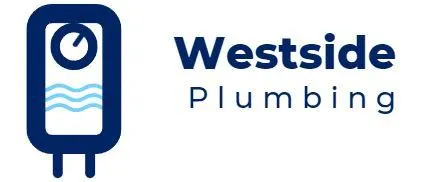Types of Water Heaters:
Which One is Best for Your Home?
Navigating the numerous options available for a new water heater can feel overwhelming, with traditional tanks, solar units, and tankless models each boasting varying levels of energy efficiency and hot water capacity. To aid you in making an informed decision that aligns with your family's needs, our comprehensive guide presents an in-depth review of each water heater type. As you delve into the details, you'll be well-prepared to select the perfect fit. Considering the unique advantages and disadvantages of each type is vital before finalizing your decision. With our guidance, you can confidently choose the ideal water heater to meet your household's hot water requirements effectively.

Traditional Storage Tank Water Heaters
Tank-style water heaters are a popular and efficient choice for heating and storing water in insulated tanks. They can use gas, electric, or oil as an energy source to heat the water. These units ensure a continuous supply of hot water, making it readily available whenever you need it with just a simple turn of the tap. Enjoy the convenience of having a steady stream of hot water for your daily needs with these reliable water heating systems.
Pros:
Continuous Hot Water Supply: With a large storage tank, tank-style water heaters provide a continuous supply of hot water. This is especially beneficial for households with high hot water demand or multiple users.
Quick Recovery Time: When the hot water is used up, tank-style heaters have a relatively quick recovery time, ensuring hot water is available again in a relatively short period.
Lower Upfront Cost: Compared to some other types of water heaters, tank-style units generally have a lower upfront cost, making them a more budget-friendly option.
Simple Installation: The installation of tank-style water heaters is straightforward, and they can be easily replaced or upgraded.
Cons:
Limited Hot Water Capacity: The storage tank's finite size can lead to running out of hot water during periods of high demand, such as when multiple showers or appliances are in use simultaneously.
Standby Heat Loss: Tank-style water heaters constantly maintain the water in the tank at a set temperature, resulting in standby heat loss. This means energy is consumed even when hot water is not being used, leading to some inefficiency.
Shorter Lifespan: Compared to some other water heater types, tank-style units generally have a shorter lifespan, typically around 10-15 years, which may require more frequent replacements.
Space Requirements: Tank-style water heaters can take up considerable space, which can be a limitation in smaller homes or utility areas.

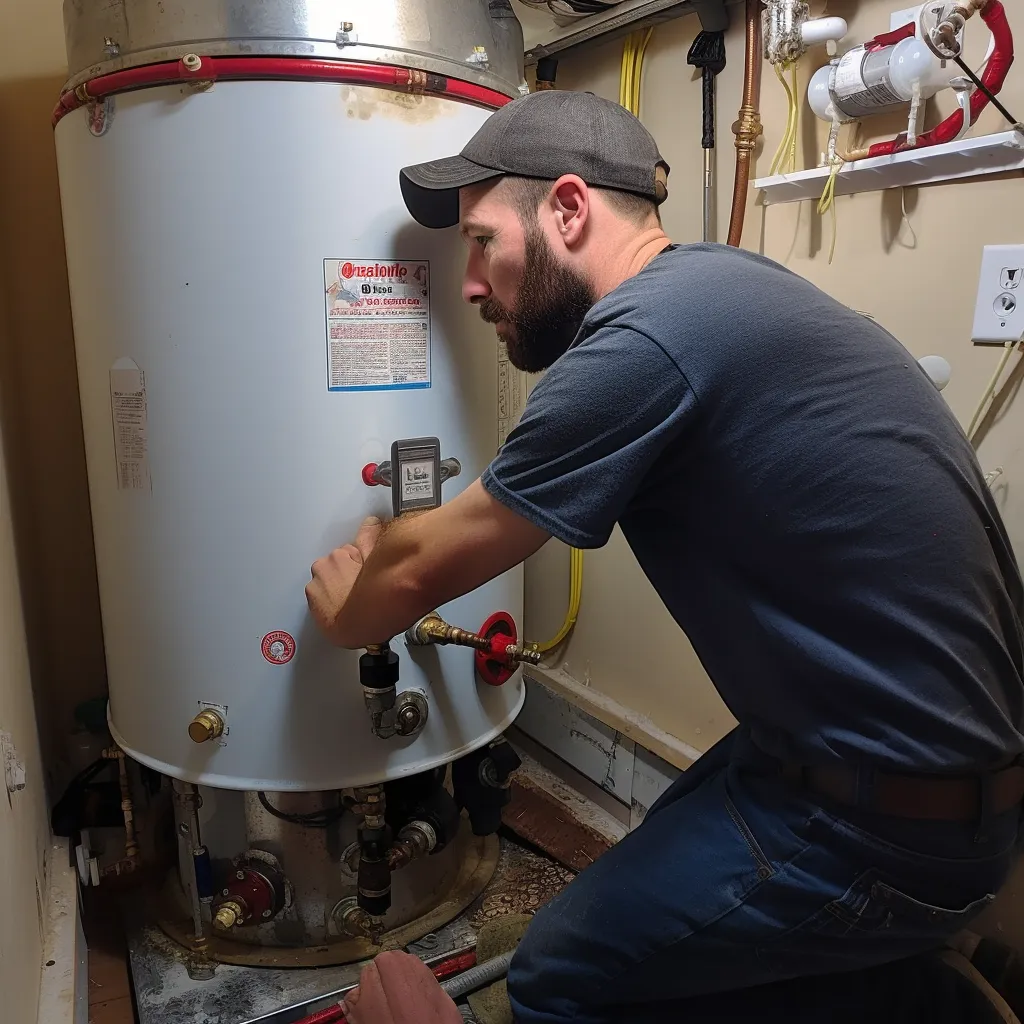
Tankless Water Heaters
Tankless water heaters present a modern and efficient alternative to traditional water heaters. Unlike tank-style models that store and heat water continuously, tankless units operate by heating water on demand. This approach not only saves energy but also frees up valuable space in your home. Although the upfront cost of a tankless water heater may be higher, the long-term savings on utility bills more than compensate for it. With their energy-saving benefits, tankless water heaters offer a more eco-friendly and cost-effective solution for meeting your hot water needs. Experience the convenience of having hot water precisely when you need it while enjoying the advantages of reduced energy consumption and a smaller environmental footprint with a tankless water heater.
Pros:
Space-Saving Design: Tankless water heaters are compact and wall-mounted, freeing up valuable floor space in your home.
Longer Lifespan: Tankless water heaters typically have a longer lifespan than tank-style units, lasting up to 20 years or more with proper maintenance.
Reduced Environmental Impact: The energy-saving nature of tankless water heaters results in lower carbon emissions, making them a greener choice for environmentally conscious homeowners.
Customizable Temperature Settings: Tankless units often come with adjustable temperature settings, allowing you to tailor the water temperature to your preferences.
Cons:
Specialized Installation: Proper installation of tankless water heaters requires specific venting and gas supply considerations, which might involve additional costs and complexity.
Maintenance Requirements: Tankless water heaters need regular maintenance, including descaling, to prevent mineral buildup and ensure optimal performance.
Cold Water Sandwich Effect: In some cases, a brief burst of cold water may occur before the unit delivers hot water, known as the "cold water sandwich effect."
Power Outage Concerns: Unlike tank-style units that store hot water, tankless water heaters rely on electricity or gas to operate. In the event of a power outage, hot water availability might be affected.
Heat Pump Water Heaters
Heat pump water heaters are renowned for their exceptional efficiency and cost-effectiveness in heating water. By harnessing a small compressor to extract heat from the surrounding air, they offer an energy-efficient solution. The best part is that they can provide ample hot water without consuming a significant amount of energy, resulting in substantial cost savings. Moreover, heat pump water heaters can operate without electricity, ensuring a reliable source of hot water even during power outages. Embrace the advantages of efficient and affordable hot water with a heat pump water heater.
Pros:
High Efficiency: Heat pump water heaters are energy-efficient, reducing utility bills and environmental impact.
Cost Savings: The efficient operation leads to cost savings on energy consumption.
Reliable during Power Outages: Heat pump water heaters can provide hot water even without electricity.
Environmentally Friendly: Reduced energy usage contributes to lower carbon emissions, promoting eco-friendliness.
Cons:
Higher Upfront Cost: The initial investment is generally higher compared to traditional water heaters.
Limited Performance in Cold Climates: In colder climates, the efficiency of heat pump water heaters may decrease.
Space Requirements: Some models may require additional space for proper installation.
Noise: Heat pump water heaters may produce some noise during operation.
Maintenance: Regular maintenance is necessary to ensure optimal performance and longevity.


Heat Pump Hybrid Water Heaters
Heat pump hybrid water heaters offer a blend of advantages from both conventional storage tank water heaters and heat pump systems. They provide high efficiency and lower operating costs compared to traditional models. Although they may require a higher initial investment, their superior functionality and effectiveness make them a worthwhile choice. Enjoy the benefits of energy-efficient heating and cost savings with a heat pump hybrid water heater, an ideal option for households seeking a reliable and economical hot water solution.
Pros:
Versatility: They combine features from both storage tank water heaters and heat pump systems, providing a versatile solution.
Eco-Friendly: Their reduced energy usage contributes to a smaller environmental footprint.
Reliable Performance: Heat pump hybrid water heaters offer reliable and consistent hot water supply.
Cons:
Space Requirements: Some models may need more space for installation.
Noise: Heat pump hybrid water heaters may produce noise during operation.
Climate Consideration: Their efficiency may be affected in colder climates.
Maintenance: Regular maintenance is necessary to ensure optimal performance and longevity.
Solar Powered Water Heaters
Solar-powered water heaters offer an excellent opportunity to lower monthly utility bills and harness renewable energy. There are two main types available: active and passive systems. These systems work by utilizing the sun's energy to heat stored water, providing a straightforward and cost-effective method to save money. By opting for a solar-powered water heater, you can enjoy reduced energy costs while embracing a more sustainable and environmentally friendly approach to heating water. Experience the advantages of eco-conscious living and long-term savings with a solar-powered water heater.

Active Systems:
Active systems use electric pumps or other mechanical devices to circulate water between the solar collector and the storage tank.
These systems are more complex and typically require a higher upfront investment compared to passive systems.
Active systems are well-suited for areas with colder climates or high hot water demand, as they offer better temperature control and higher efficiency.
Passive Systems:
Passive systems rely on natural convection to circulate water between the solar collector and the storage tank, without the use of mechanical pumps.
These systems are simpler in design and have lower installation and maintenance costs compared to active systems.
Passive systems are generally more suitable for areas with milder climates and moderate hot water demand, as they may have lower efficiency in colder conditions.
Pros:
Higher Efficiency
Better Temperature Control
Suitable for Colder Climates
Cons:
Higher Upfront Cost
More Complex Design
Energy Dependence
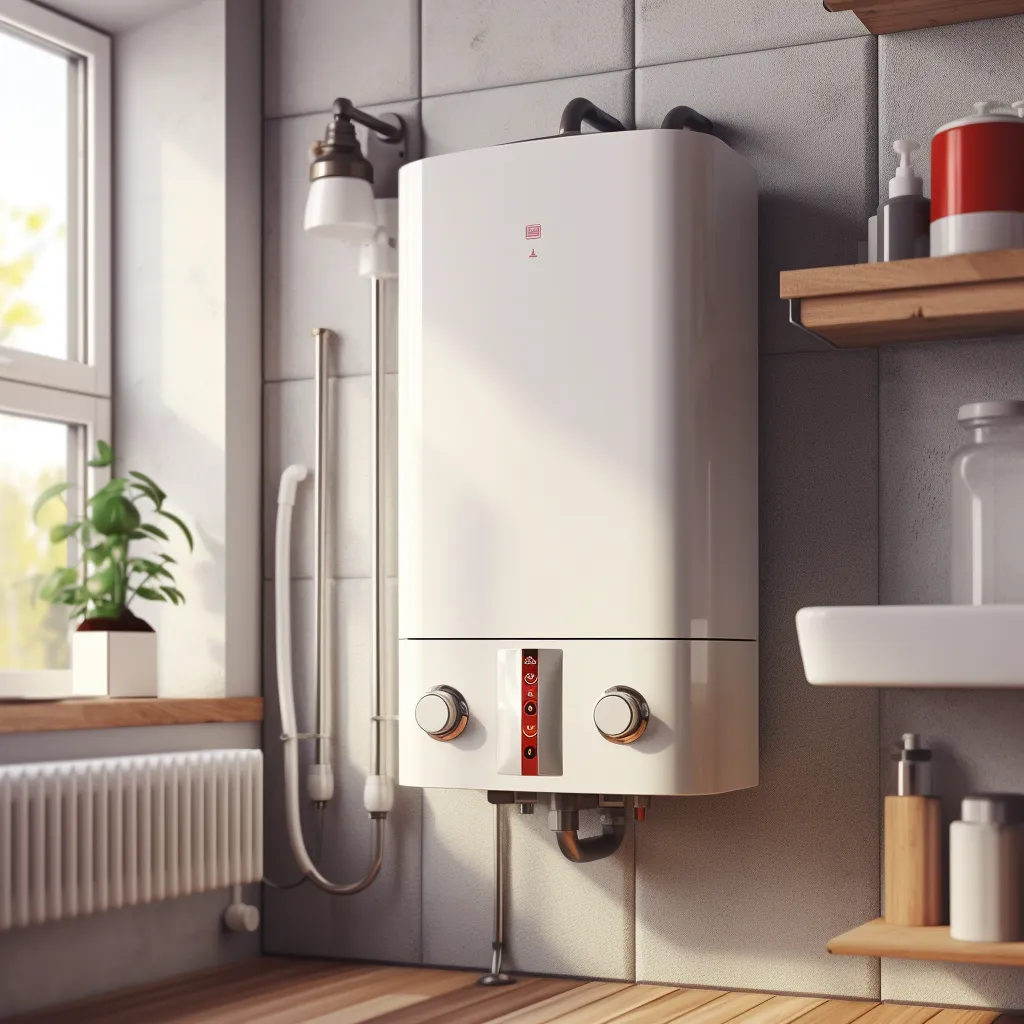
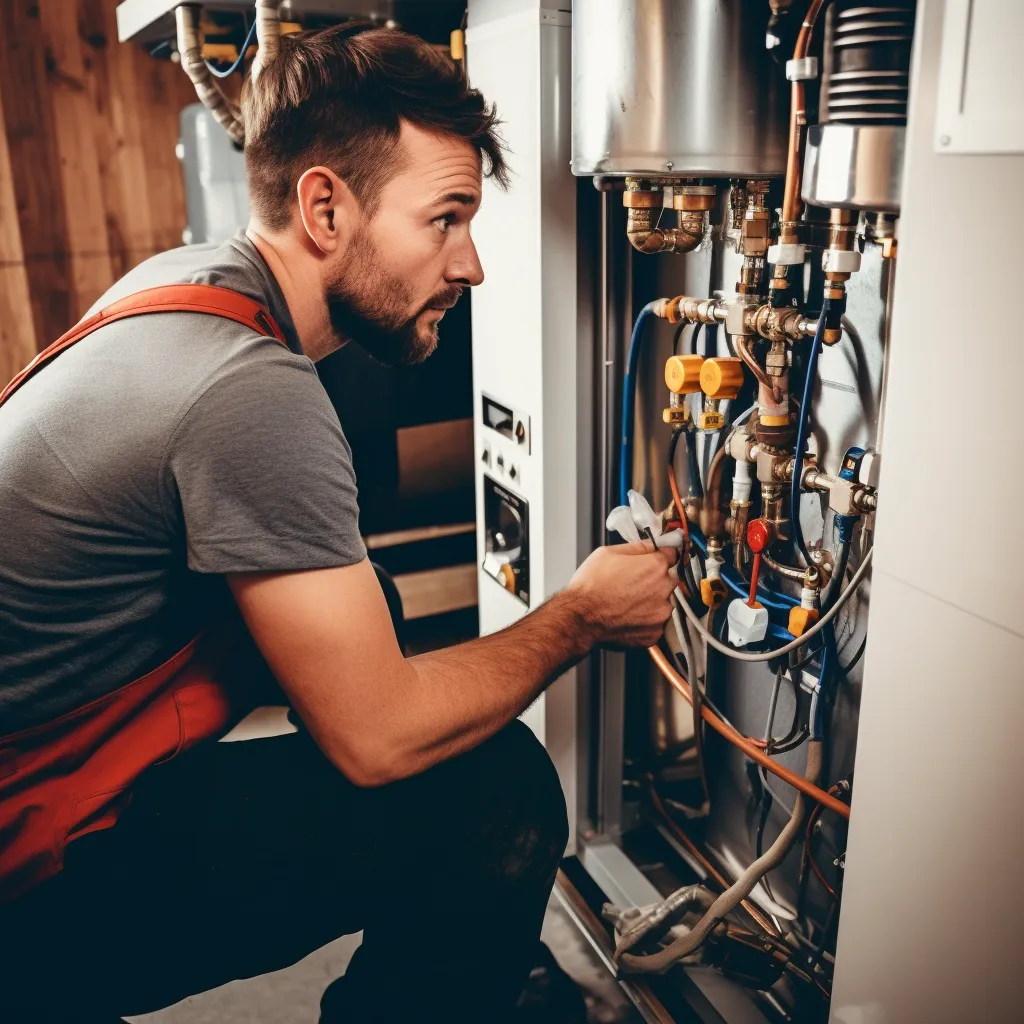
Point-of-Use Water Heaters
Point-of-use water heaters offer the convenience of hot water on demand in a compact and efficient system. They are especially suitable for small spaces or for those seeking an alternative to traditional storage tanks to avoid associated costs and inefficiencies. By providing hot water directly at the point of use, these heaters eliminate the need for long pipe runs and minimize heat loss. Enjoy the benefits of immediate hot water while saving energy and space with a point-of-use water heater.
Pros:
On-Demand Hot Water: Provide hot water instantly at the point of use, eliminating the need for waiting and reducing water waste.
Compact Design: Space-saving and ideal for small areas, making them convenient for installation in various locations.
Energy Efficiency: Minimize heat loss and reduce energy consumption by heating water directly at the point of use.
Cost Savings: Avoid the inefficiencies and expenses associated with maintaining a large storage tank.
Cons:
Limited Hot Water Supply: Point-of-use water heaters may have lower capacity and may not be suitable for high-demand scenarios.
Multiple Units Required: Larger properties or homes with multiple hot water access points may need several units, increasing the upfront cost.
Installation Complexity: Depending on the setup, installation may require additional plumbing and electrical work.
Water Heaters With Hydronic Boilers
Hydronic boilers offer a highly efficient heating system that uses water, not air, to circulate heat throughout your space. They excel in providing both hot water for domestic use and space heating, making them a practical choice for colder climates. Their energy-efficient operation leads to cost savings on utility bills. Additionally, hydronic boilers create a cleaner indoor environment by minimizing airborne dust and allergens, as they don't rely on forced air. When paired with tank water heaters, hydronic boilers offer an affordable solution to meet your hot water needs. Experience the benefits of effective and versatile heating with a hydronic boiler, ideal for creating a comfortable and welcoming environment in your home.
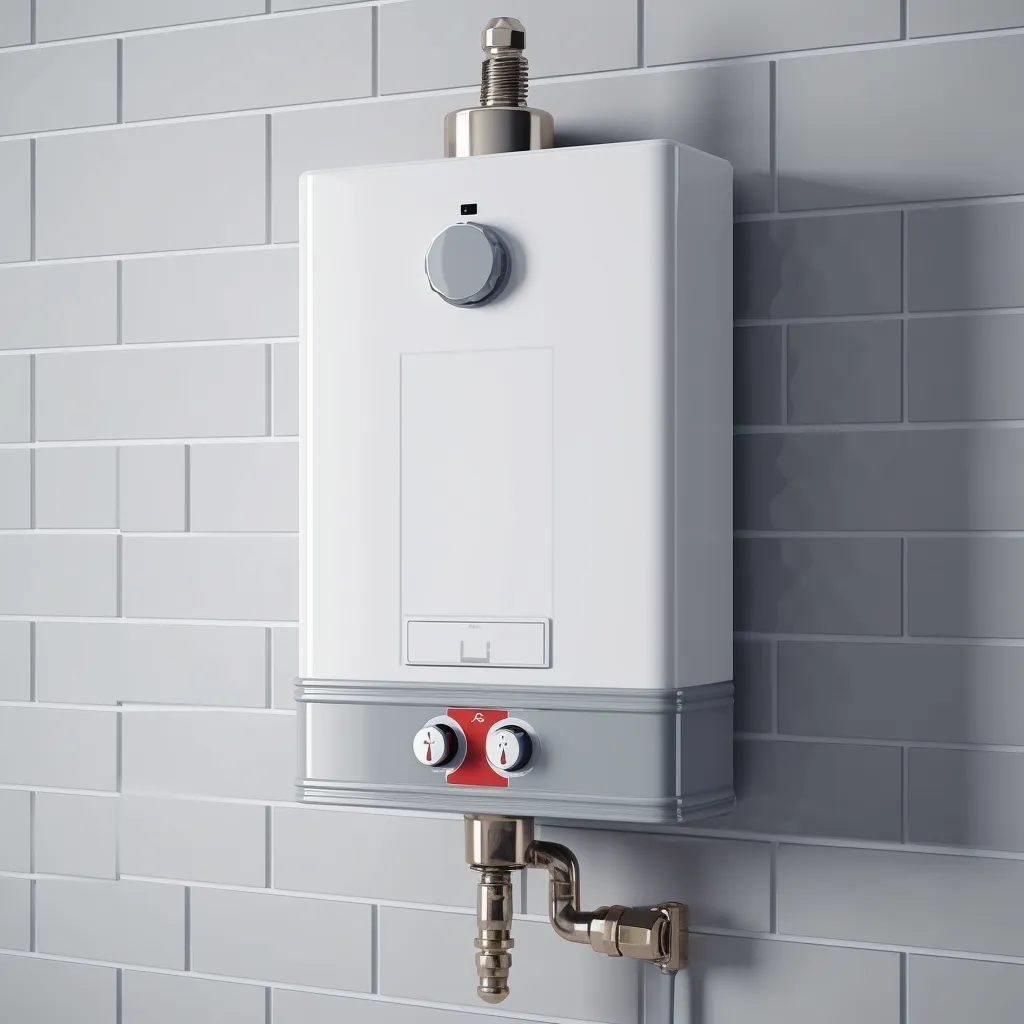
Pros:
Highly Efficient Heating: Hydronic boilers provide effective and even heating, offering superior comfort.
Dual Functionality: They can supply both hot water for domestic use and space heating, offering versatility.
Cons:
Higher Initial Cost: The upfront investment for hydronic boilers may be higher compared to some other heating systems.
Complex Installation: Installing hydronic boilers may require specialized plumbing work, making the process more complex.


Smart Water Heaters
Upgrade your water heating system with smart water heaters, embracing cutting-edge technology for efficient hot water production. Wi-Fi enabled thermostats allow you to easily manage your hot water consumption and expenses from anywhere. Take control of temperature settings and customize them to suit your needs, all through your smartphone. With smart water heaters, experience convenience, energy savings, and personalized control at your fingertips. Upgrade to the future of water heating and enjoy a more efficient and connected home.
Pros:
Energy Efficiency: Smart water heaters allow for better control of temperature settings, leading to energy savings and reduced utility bills.
Remote Management: With Wi-Fi enabled thermostats, you can manage your hot water system from anywhere using your smartphone, providing convenience and flexibility.
Cons:
Higher Initial Cost: Smart water heaters may have a higher upfront cost compared to traditional water heaters.
Dependency on Technology: Relying on Wi-Fi and smartphone connectivity may lead to issues if there are connectivity or technical problems.
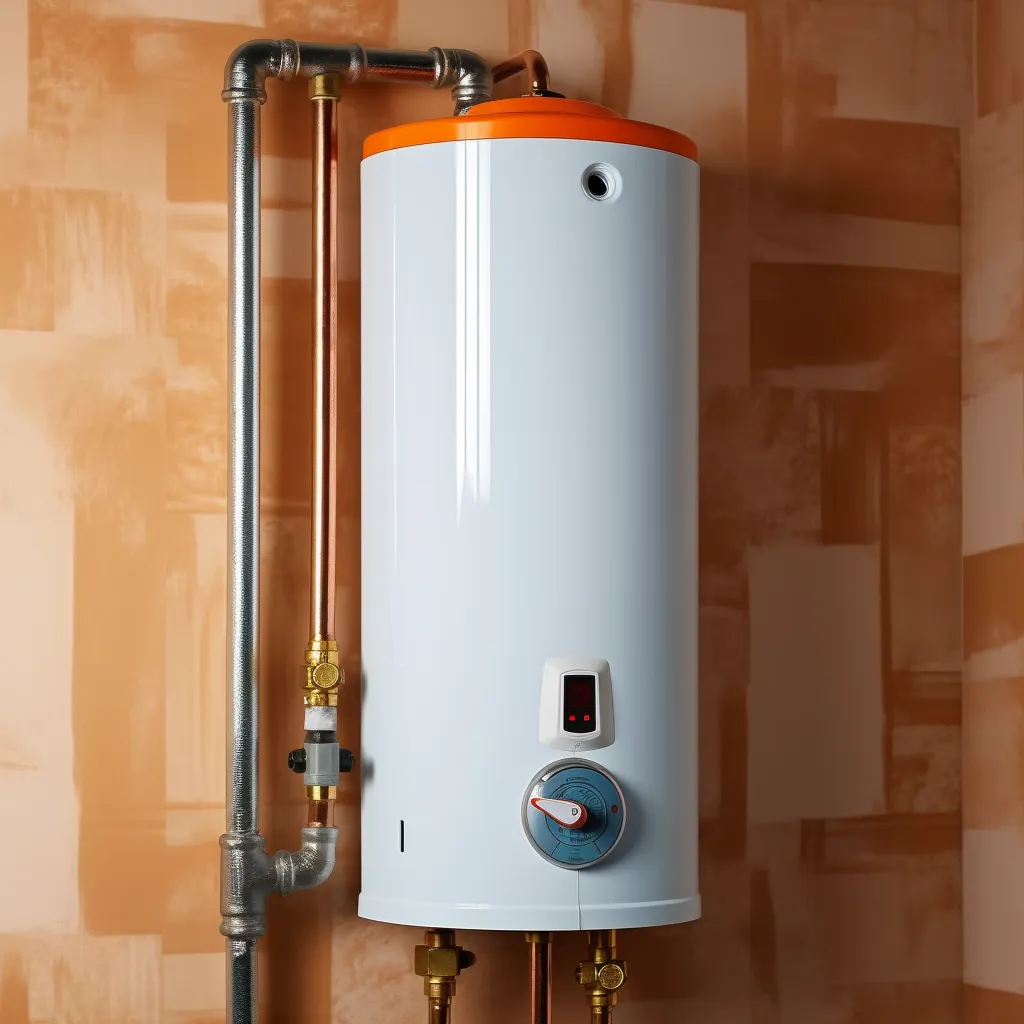
Condensing Water Heaters
Introducing condensing water heaters, the ultimate fusion of tankless and conventional storage tank systems, providing the best of both worlds. These innovative water heaters utilize advanced technology to extract and harness heat from exhaust gases, maximizing efficiency and delivering substantial cost savings. By ingeniously capturing and utilizing heat that would otherwise go to waste, condensing water heaters elevate performance and significantly increase energy efficiency. With their state-of-the-art design and eco-friendly operation, condensing water heaters are the ideal choice for homeowners looking to upgrade to an advanced and environmentally conscious water heating solution. Experience unparalleled efficiency, cost-effectiveness, and performance with condensing water heaters, leading the way in modern water heating technology.
Pros:
Improved Performance: Offer better heating performance compared to standard tank water heaters.
Environmentally Friendly: Contribute to lower carbon emissions and promote a greener living environment.
Cons:
Space Requirements: Some models may require more space for installation, especially when compared to traditional tank water heaters.
Maintenance Considerations: Proper maintenance is essential to ensure optimal performance and efficiency over time.
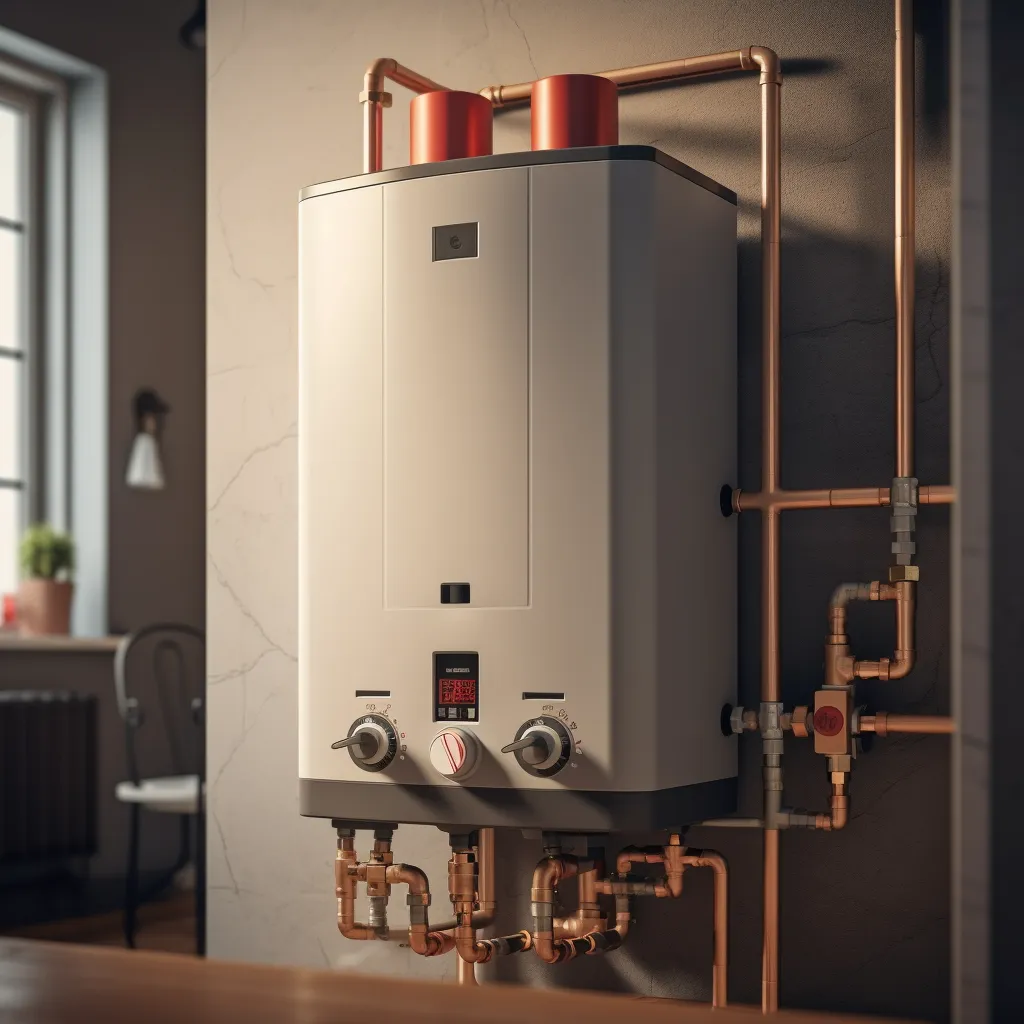
How to choose the right
water heater for your home
Finding the right-sized water heater is essential to ensure optimal hot water supply and avoid unnecessary costs or space issues. An undersized water heater may lead to insufficient hot water, while an oversized one can be wasteful and take up unnecessary space. To determine the ideal size for your family's needs, consider your daily hot water usage and lifestyle. By selecting the appropriate water heater size, you can enjoy both comfort and cost-efficiency, with an ample supply of hot water that meets your requirements.
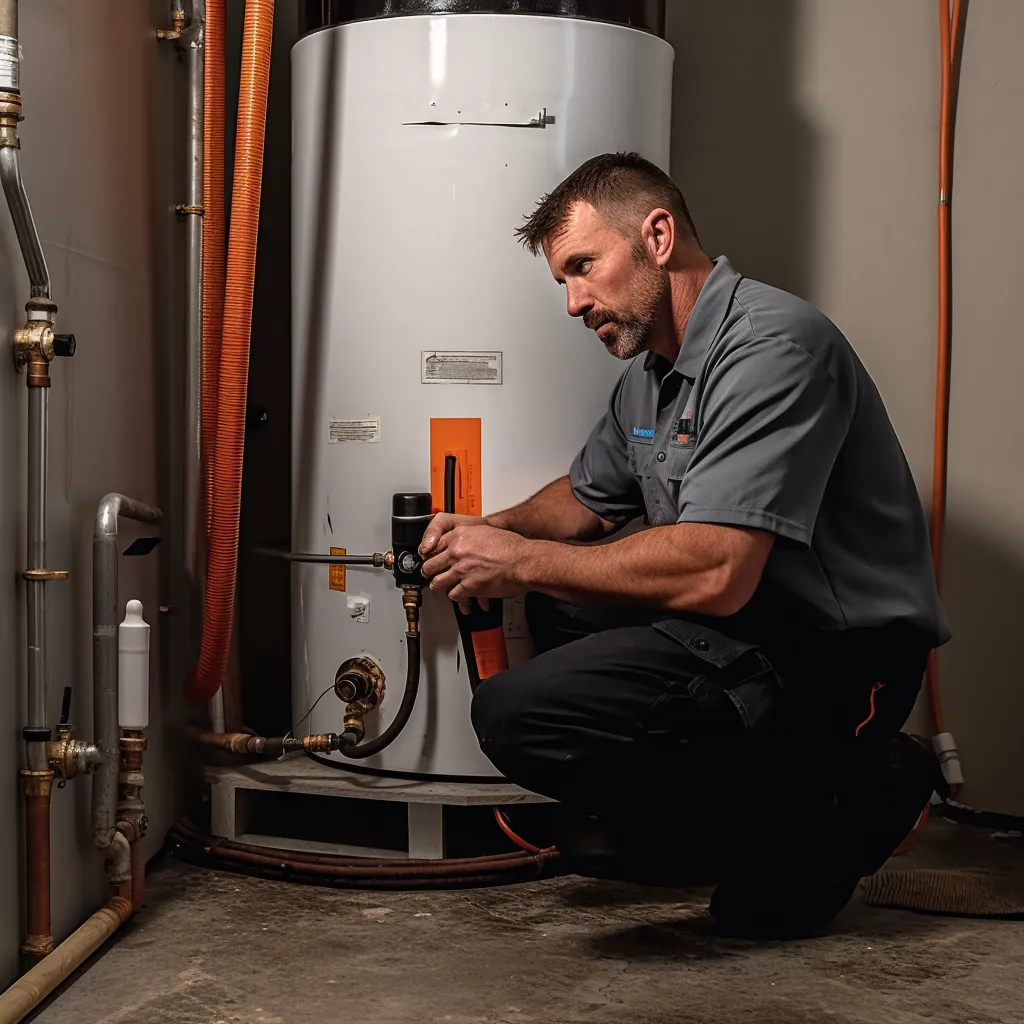
When should you
replace your water heater?
A properly functioning water heater is vital for the smooth operation of your home's plumbing system, providing hot water for essential daily tasks like showering, dishwashing, and laundry. Typically, water heaters have a lifespan of approximately 10-15 years. If your water heater has reached or exceeded this age, it's prudent to consider investing in a new one. Upgrading to a newer model guarantees a reliable hot water supply and helps prevent potential problems and costly repairs associated with aging units. Ensure uninterrupted hot water availability and peace of mind by upgrading to a new water heater when the time is right.
Tank leakage.
Strange noises.
Discolored water.
Lack of hot water.
High energy bills.
Although the initial cost of installing a new water heater can be significant, the long-term advantages of enhanced energy efficiency and dependable performance make it a worthwhile investment. Engaging a licensed plumber is essential as they can assess your specific requirements, recommend the appropriate type and size of water heater, and ensure proper installation for optimal efficiency and longevity. Investing in a new water heater with professional guidance guarantees cost savings, increased energy efficiency, and a reliable hot water supply for years to come.
Maintenance tips for
water heater efficiency
Regular maintenance of your water heater is crucial to prevent potential issues and ensure its efficiency over time. By following simple maintenance routines, you can keep your water heater running smoothly, providing you with affordable and reliable hot water. Scheduled maintenance tasks, such as flushing the tank, checking for leaks, and inspecting the heating elements, can help extend the lifespan of your water heater and avoid costly repairs. Embracing regular maintenance practices ensures that your water heater operates optimally and continues to meet your hot water needs efficiently.
Benefits of hiring a licensed plumber
to replace your water heater
When contemplating whether to replace your water heater, you might be tempted to handle the task yourself. However, hiring a professional plumber offers several essential advantages that you should consider:

Expertise: Professional plumbers have the necessary knowledge and experience to handle water heater replacements efficiently and effectively.
Safety: Water heater installation involves working with gas or electrical connections, which can be hazardous if not done correctly. Plumbers ensure the installation is done safely and up to code.
Proper Sizing: Plumbers can assess your household's hot water needs and recommend the right-sized water heater for optimal performance.
Warranty: Many water heaters come with warranties, and professional installation can help maintain these warranties and protect your investment.
Considering these advantages, it's evident that entrusting your water heater replacement to a professional plumber ensures a smooth and successful installation, providing you with peace of mind and reliable hot water for years to come.
Contact Us
GET IN FULL TOUCH
PHONE: (209) 370-0794
EMAIL:
orlando@waterheatermodesto.com
Westside Plumbing
Modesto, CA 95354
